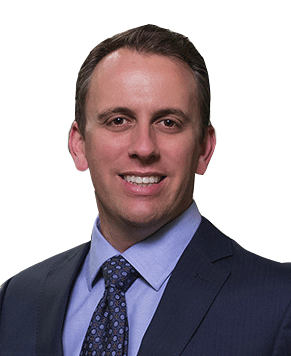

Insurance Commissioner Ricardo Lara is seeking reelection as California’s Insurance Commissioner, but his bid will not go unchallenged. Five-term Assemblyman Marc Levine (D-San Rafael) says he is running to unseat the first-term Commissioner. Records indicate that he has $1.8 million in the bank – although still in his Assembly account – to get the campaign off the ground.
Levine tells Workers’ Comp Executive that he became active in insurance issues following the recent North Bay fires and is now seeking the Commissioner’s seat to continue those efforts. “Someone needs to do the job,” he maintains. “I’ve done a lot of work in this area of law, in particular after the 2017 fires. I authored three insurance reforms called Survivors of Wildfire and continue to be engaged in this space, particularly as the insurance crisis has only gotten worse and the solutions are few and far between.”
The North Bay Assemblyman is seen as an early underdog in the race with limited statewide name recognition and an unclear base of support. Political experts say Levine is a virtual unknown south of Sacramento.
By comparison, Commissioner Lara enjoys strong support from the Latino and LGBTQ communities. Sources indicate that the California Democratic Party is poised to back Lara over Levine in the primary.
Attacks Lara’s Reputation
Assemblyman Levine, however, says he lacks the baggage that Commissioner Lara carries. The Commissioner’s reputation was severely tarnished after it came to light that he accepted campaign contributions from insurance industry officials and their wives after promising that he would not do so. Commissioner Lara ultimately returned the funds and halted fundraising for a time, but that point did the reputational damage.
Lara’s reputation suffered further when his office intervened in several cases before the Department and rejected proposed decisions that were averse to Applied Underwriters’ interests. It later surfaced that Lara had taken private meetings with top executives from Applied at a time when the carrier had multiple issues pending before the Department.
Levine is pledging not to accept insurance industry money and points out that his website requires contributors to state that they do not have business before the Department and are not involved in the insurance industry. Levine’s website also attacks Lara’s ethical lapses. Levine says his support will come from the thousands of homeowners facing cancelations or steep rate hikes.
The wide range of special interests with business before the Department limits Levine’s contributions to the idealistic in a race about which most voters don’t know or care.
Winning the race requires millions of votes, and the strong Latino communities around central and southern California appear to give Lara the edge.
Limited Workers’ Comp Knowledge
First elected to the Assembly in 2012, Assemblyman Levin has never served on the Assembly Insurance Committee, nor has he authored any legislation regarding workers’ compensation.
Of the $21.4 billion California workers’ comp system comprised of insured and self-insured employers, covering 16 million Californians, employing tens of thousands of people, and which experiences some 680,000 occupational injuries and illnesses each year, Levine says, “That’s a pretty arcane area of insurance coverage that only gets attention in times of crisis as we saw over a decade ago when there was a challenge with the solvency of insurers,” he says. “So, the number one concern is to make sure that the insurers are solvent.”
That statement – showing a devastating lack of knowledge – likely will cost Levine employers, the labor unions, doctors, and attorneys, says one lobbyist.
He says it’s a crisis of a different sort driving his candidacy now– the wildfire-induced crisis in the homeowners’ insurance market.
Most recently, Levine authored AB 1522, the Catastrophic Wildfire Insurance Act, to create a California Wildfire Insurance Authority to provide a market for catastrophic wildfire insurance. The bill proposes requiring carriers to provide the coverage statewide but have a state fund cover losses over $100 million in a year. The bill also proposes requiring carriers to offer home inspection services for those homeowners in high fire risk areas and would give grants or discounts for fire hardening efforts.
“The workers’ comp crisis that was a decade ago, well that’s where we’re at with homeowners [insurance] across California. So, we’ve got to address this crisis,” says Levine. “Of course, we’re going to be keeping an eye on workers’ compensation because you always have to address fraud and protect solvency. No one’s going to be taking an eye off the ball – we’re going to be going to work every day, rolling up our sleeves and paying attention to the insurance markets. That’s something that Californians have missed and we’re going to bring that seriousness.”
The California primary is scheduled for June 7, 2022.

